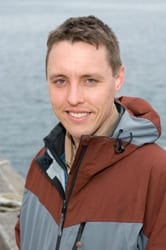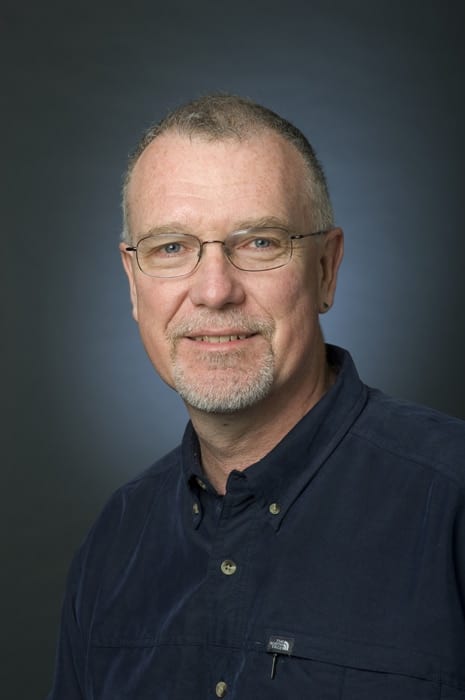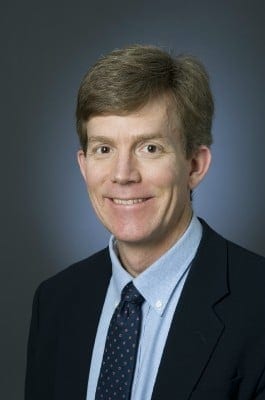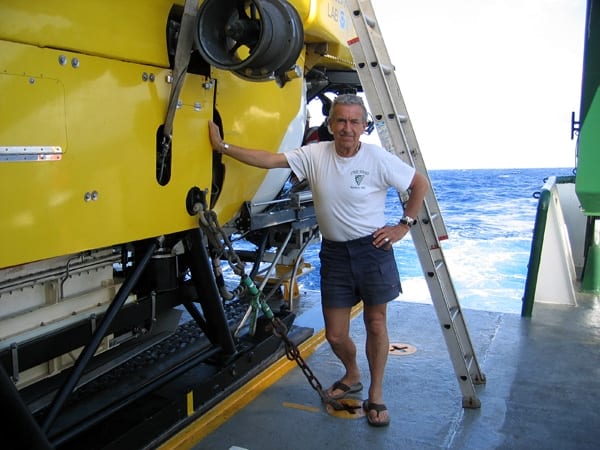News Releases
Geologists Discover Signs of Volcanoes Blowing their Tops in the Deep Ocean
A WHOI research team has uncovered evidence of explosive volcanic eruptions deep beneath the ice-covered surface of the Arctic Ocean. Such violent eruptions of splintered, fragmented rock?known as pyroclastic deposits?were not thought possible at great ocean depths because of the intense weight and pressure of water and because of the composition of seafloor magma and rock.
Read MoreCheetahs of the Deep
A new study has revealed that pilot whales are “the cheetahs of the deep sea,” making high-speed, all-or-nothing dives to chase and catch large prey before surfacing to catch their…
Read MoreMarine Chemist Says “Not So Fast” to Quick Oil Detection Method
A new method for assessing environmental contamination after oil spills is in danger of being applied in situations where it doesn’t work and might produce false conclusions, a scientist at…
Read MoreScientists Find Bacteria Thriving on a Feast of Seafloor Rock
On the deep ocean floor, microbial life is feeding on fresh volcanic rock and flourishing with greater abundance than even the most optimistic scientists thought possible. According to a study…
Read MoreNew Whale Detection Buoys Will Help Ships Take the Right Way through Marine Habitat
Researchers from the Woods Hole Oceanographic Institution (WHOI) and the Cornell Lab of Ornithology have teamed up with an international energy company and federal regulators to listen for and help protect endangered North Atlantic right whales in New England waters.
Read MoreIn Computer Models and Seafloor Observations, Researchers See Potential for Significant 2008 “Red Tide” Season
Researchers from WHOI and North Carolina State University are preparing for a potentially big bloom of harmful algae in New England waters this spring. A combination of abundant beds of algal seeds and excess winter precipitation have set the stage for an Alexandrium bloom similar to the historic “red tide” of 2005. Weather patterns and ocean conditions over the next few months will determine whether this year’s algal growth affects coastal shellfishing.
Read MoreLakes of Meltwater Can Crack Greenland’s Ice and Contribute to Faster Ice Sheet Flow
Researchers from WHOI and the University of Washington have for the first time documented the sudden and complete drainage of a lake of meltwater from the top of the Greenland ice sheet to its base. From those observations, scientists have uncovered a plumbing system for the ice sheet, where meltwater can penetrate thick, cold ice and accelerate some of the large-scale summer movements of the ice sheet.
Read MoreUnderwater Microscope Helps Prevent Shellfish Poisoning Along Gulf Coast of Texas
Through the use of an automated, underwater cell analyzer developed at WHOI, researchers and coastal managers were recently able to detect a bloom of harmful marine algae in the Gulf of Mexico and prevent human consumption of tainted shellfish.
Read MoreMaking Sure the Wonder Materials Don’t Become the Wonder Pollutant
Carbon nanotubes are 10,000 times thinner than a human hair, yet stronger than steel and more durable than diamonds. They conduct heat and electricity with efficiency that rivals copper wires…
Read MoreScientists Prepare for a Risky Mission Under the Arctic Ice
Bone-chilling temperatures, biting winds, and rapidly changing sea ice conditions make the Chukchi Sea off Point Barrow, Alaska, a particularly challenging place to work. And then there are the curious…
Read MoreDavid Ralston Receives Young Investigator Award
The Office of Naval Research (ONR) has selected David Ralston, an assistant scientist at the Woods Hole Oceanographic Institution (WHOI), as one of the recipients of the U.S. Navy’s 2008 Young Investigator Awards.
Read MoreHal Caswell Receives First Per Brinck Oikos Award
The Per Brinck Foundation has selected biologist Hal Caswell of the Woods Hole Oceanographic Institution (WHOI), as the first recipient of the Per Brinck Oikos Award, which recognizes extraordinary and important contributions to the science of ecology.
Read MoreNew Research Suggests Biofuel Blending is Often Inaccurate
While sampling blended biodiesel fuels purchased from small-scale retailers, researchers at the Woods Hole Oceanographic Institution found that many of the blends do not contain the advertised amount of biofuel.
Read MoreButterflyfish May Face Extinction
A beautiful black, white and yellow butterflyfish, much admired by eco-tourists, divers and aquarium keepers alike, may be at risk of extinction, scientists have warned.
Read MoreResearchers Give New Hybrid Vehicle Its First Test-Drive in the Ocean
Researchers from the Woods Hole Oceanographic Institution (WHOI) and Webb Research Corporation (Falmouth, Mass.) have successfully flown the first environmentally powered robotic vehicle through the ocean. The new robotic ?glider? harvests heat energy from the ocean to propel itself across thousands of kilometers of water.
Read MoreDennis McGillicuddy Receives 27th Annual Rosenstiel Award
The University of Miami?s Rosenstiel School of Marine and Atmospheric Science has selected Dennis J. McGillicuddy, Jr., Ph.D., as recipient of the 2008 Rosenstiel Award. McGillicuddy, a senior scientist in the Department of Applied Ocean Physics and Engineering at WHOI is a pioneer in the study of physical-biological interactions in the ocean.
Read MoreLost City pumps life-essential chemicals at rates unseen at typical black smokers
Hydrocarbons?molecules critical to life?are routinely generated by the simple interaction of seawater with the rocks under the Lost City hydrothermal vent field in the Atlantic Ocean. The production of such building blocks of life makes Lost City-like vents strong contenders as places where life might have originated on Earth, according to research led by the University of Washington and the Woods Hole Oceanographic Institution.
Read MoreWHOI Geochemist Awarded for Contributions to Studies of the Physics of the Earth
The U.S. National Academy of Sciences has selected Stanley Hart of the Woods Hole Oceanographic Institution as the 13th recipient of the Arthur L. Day Prize and Lectureship. Hart, a scientist emeritus in the WHOI Department of Geology and Geophysics, was recognized for making lasting contributions to the study of the physics of the Earth.
Read MoreEarth’s Moving Crust May Occasionally Stop
The motion, formation, and recycling of Earth?s crust?commonly known as the theory of plate tectonics?have long been thought to be continuous processes. But new research by geophysicists suggests that plate tectonic motions have occasionally stopped in Earth?s geologic history, and may do so again.
Read MoreLockheed Martin Successfully Completes Preliminary Design Review for New Scientific Research Mini-Sub
Lockheed Martin recently completed a Preliminary Design Review for the Replacement Human Occupied Vehicle (RHOV), a next generation three-person Deep Submergence Vehicle that will be used by the U.S. scientific community.
Read MorePolar Bear Population Likely to Become Extinct
Within the month, the U.S. government must decide whether to list the polar bear as an endangered species. The question is: will such a declaration be too late because of…
Read MoreShould Every Stranded Dolphin or Seal Be Saved?
A sick or injured seal or dolphin is found stranded on a beach. Should limited marine mammal protection funds be spent to rehabilitate the animal, or would they be better…
Read MoreWHOI Scientists Offering Timely Global Change Talks at Science Meeting
Three senior scientists from the Woods Hole Oceanographic Institution will offer cautionary looks at the past and future of global climate change at the upcoming annual meeting of the American…
Read MoreTrawling Leaves Lasting Scars on Deep Ocean Coral Habitat
More than a decade after fishing stopped near the Corner Rise Seamounts in the North Atlantic, researchers have found that the seafloor still has patches that are almost completely devoid…
Read More



